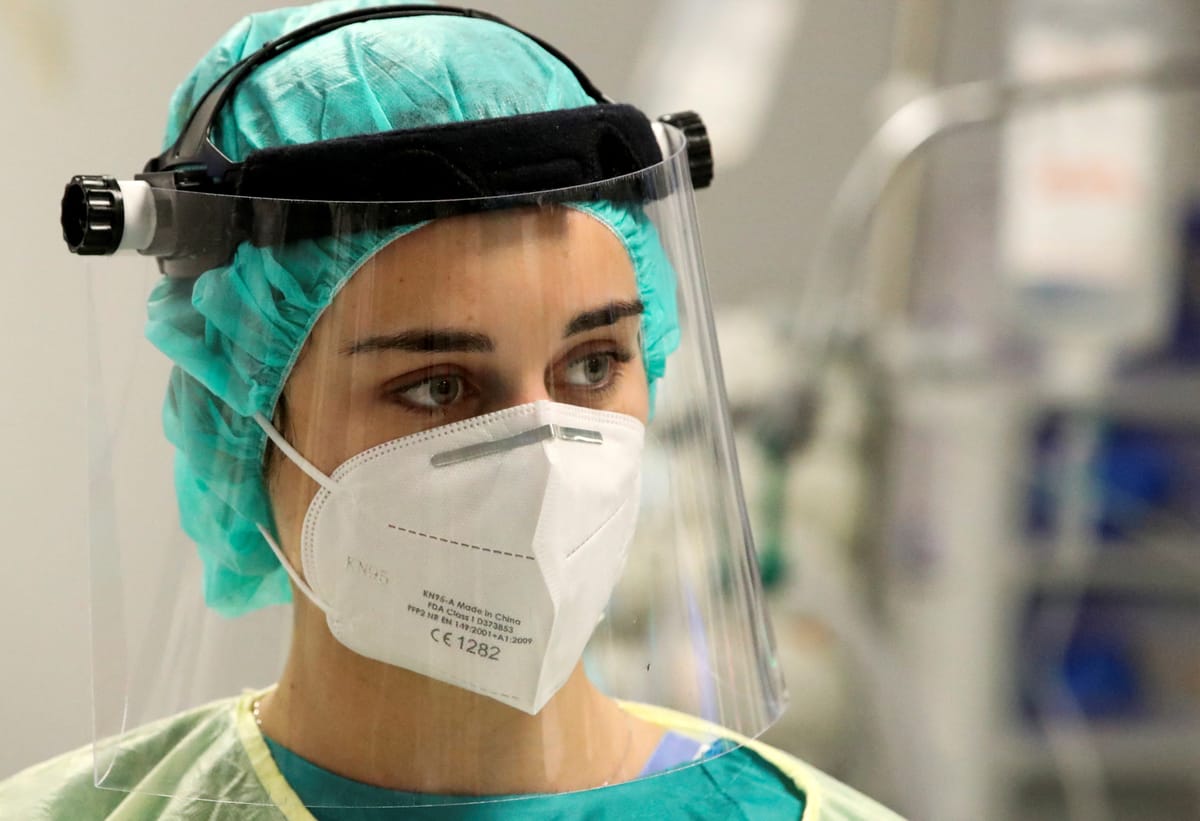New Long COVID treatment gives hope to sufferers
When COVID began spreading all over the world in early 2020, doctors noticed that some people who’d contracted the virus continued to feel symptoms, even after “recovering” from it.

A few minutes every morning is all you need.
Stay up to date on the world's Headlines and Human Stories. It's fun, it's factual, it's fluff-free.
The backstory: When COVID began spreading all over the world in early 2020, doctors noticed that some people who’d contracted the virus continued to feel symptoms, even after “recovering” from it, Or a person’s symptoms could return or new ones could show up after already getting over the disease. These symptoms can be the same or different than symptoms of COVID, like chronic fatigue, loss of or changes in sense of smell, brain fog, breathing problems, heart palpitations, sleep problems, mental health issues, digestive troubles, joint/muscle pain and more. This condition can also trigger other health issues, like diabetes or kidney disease. It’s known as “Long COVID.”
At this point, hundreds of results have been published from government-conducted or sponsored research, but not much progress has been made in explaining, preventing or treating this problem over more than three years. Some patients have responded to certain therapies/approaches. For instance, vaccination after COVID recovery might help prevent long-term symptoms. And, there are clinical trials for Long COVID treatments currently ongoing, like one to see if a longer course of Paxlovid, an antiviral drug used to treat COVID infections, would be effective at getting rid of chronic COVID.
More recently: There’s been some much-needed progress in the past couple of months when it comes to Long COVID. In September, researchers developed ways to distinguish blood markers of people with the condition, meaning that there could be a better way to diagnose it soon. A few weeks ago, scientists offered a new explanation for the cause of Long COVID. Researchers at the University of Pennsylvania published a study suggesting that Long COVID symptoms come from a drop in serotonin caused by virus leftovers still in the gut. Less serotonin would help explain memory problems and other neurological and cognitive symptoms of this condition, especially. This new study is one of many new routes that Long COVID research has taken recently. At the moment, theories on what causes the virus include lingering remains of the virus, inflammation, increased blood clotting and a dysfunctioning autonomic nervous system.
The development: Now, a new therapy is being tested to try to help Long COVID sufferers – specifically, those whose sense of taste and/or smell is still affected. In new research, doctors target a group of nerves in the neck called the “stellate ganglion block,” injecting anesthetic into the cluster to stimulate the autonomic nervous system. This approach has been used to treat PTSD, cluster headaches and other diseases, but this is the first time it’s been used for Long COVID in a study setting.
While this method doesn’t necessarily cure everyone’s problems with taste and smell (not everyone responds to the treatment), this therapy does make sense when it comes to the major theories behind the possible causes of Long COVID. Experts say this therapy is promising for developing more therapies and treatments. On top of this experimental treatment, researchers have also become more optimistic that breakthroughs are coming in other clinical trials on potential therapies and studies on biomarkers for diagnosing.
Key comments:
“Post-COVID parosmia is common and increasingly recognized,” Dr. Adam Zoga, a study author and a professor of musculoskeletal radiology, said in a press release. “Patients can develop a distaste for foods and drinks they used to enjoy.”
“In the short history of studying this disease, this is probably the most hopeful moment we’ve ever had,” says Christoph Thaiss, an assistant professor of microbiology at the University of Pennsylvania’s Perelman School of Medicine who co-authored a recent study on Long COVID.




Comments ()